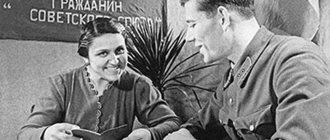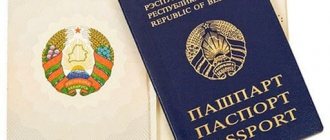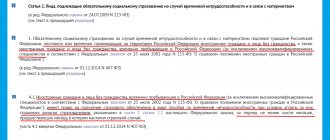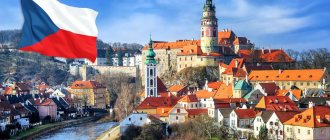Resettlement of compatriots
For residents of the former Soviet Union, it is possible to obtain a Russian passport by relocating to the Russian Federation.
Please note: this program only works in some regions of the Russian Federation. For resettlement, it is necessary that the citizen has the specialty, education required by the region, or meets other conditions for participation in the resettlement program. Being born on the territory of a union republic is a necessary condition, but not sufficient, to obtain citizenship.
Beware of scammers offering fraudulent resettlement program documents.
What conditions are imposed on people wishing to obtain a residence permit in Russia?
What other requirements are there for a person receiving Russian citizenship if he was born in the USSR? If the case does not fall under Part 7 of Art. 14 of the Federal Law on citizenship, then along with the application for admission to citizenship of the Russian Federation it will be necessary to provide:
- Resident card.
- A document confirming the existence of a legal source of livelihood, which may be a certificate of income of an individual, a certificate of employment, a tax return, a pension certificate, or another document specified in Part 14 of Presidential Decree No. 1325.
- Confirmation of Russian language proficiency (testing is paid), those who received education in a country where Russian is the state language (Belarus), as well as people who have reached retirement age, are exempt.
- One of the documents listed in the article above, which will confirm the fact of the place of birth.
If the case falls under Part 7 of Art. 14 Federal Law, then along with the Application the following is provided:
- temporary residence permit in the Russian Federation, or residence permit if available;
- certificate of participant in the above-mentioned State program;
- document renouncing existing other citizenship.
CIS
If a person was not a Soviet citizen, but was born after the collapse of the union on the territory of the CIS, then he can obtain Russian citizenship on a general basis:
- Temporary residence permit
- Resident card
- Registration of citizenship
The total period is about 5 years.
A CIS citizen has the right to reduce the period for obtaining citizenship if he has:
- Parents or children who are Russian citizens
- When receiving education in Russia
- Marriage with a Russian man or Russian woman (more than three years)
- Birth in Russia
A citizen of the CIS can obtain a passport of the Russian Federation one and a half years in advance if the specified grounds exist.
Are there other special requirements?
It should be emphasized that the law does not impose any additional requirements, in addition to confirming the fact of birth on the territory of the USSR, such as, for example, studying at a university on the territory of the USSR, however, at the time of submitting the application it is necessary to have a residence permit.
Moreover, in accordance with paragraph “b” of Part 14 of Presidential Decree No. 1325, a document that can confirm the presence of Russian citizenship in the past may be:
- passport of a citizen of the USSR;
- birth certificate issued in the USSR or its diplomatic mission;
- an official record or certificate from the relevant body of a foreign state that was part of the USSR about the exchange of a passport of a citizen of the USSR for a document of a stateless person.
Important! The detailed procedure for obtaining citizenship is described in the Regulations on the procedure for considering citizenship issues, established by the Presidential Decree.
Advantages of a migration center
- Reliability . The center has been operating since 1996.
- Experience . All migration law lawyers have been working in the center for more than 10 years.
- Guarantees . All documents are received in the personal presence of the applicant.
- Agreement . A contract is concluded for all services.
- Installment plan . All payments are made in stages with 50 percent installments.
- Result . We work until the desired result is achieved.
Case studies
Dmitry: On the Direct Line, the president said that the residents of Donbass and Ukraine “are not strangers to us.” The “Law on State Policy towards Compatriots Abroad” long ago prescribed all these rules. But they don't work well in practice. After all, anyone from the Union can get a Russian passport, regardless of what country they live in. Now there is hope that the law will work, and everyone - immigrants from the USSR - will be able to obtain citizenship under a simplified scheme.
Anton: We were faced with obtaining a Russian passport by moving to the Russian Federation. It does not work in all regions of the country. The goal of the program is to help a compatriot resettle. But in reality, this is some kind of job fair. If the region needs this specialist, then the program works. If not, then it is impossible to move.
Anna: For native speakers, a difficult resettlement pattern is also emerging. In some regions, the examination commission works at random. A huge crowd of people cannot confirm their knowledge for months. The feeling that you have to pay for everything. And even after passing the exams they find fault with every detail. This year, tests were legalized where you must answer 65% of the questions correctly. But there are few such lucky ones, so almost everyone retakes them 2-3 times.
Are you a citizen of the USSR if you were born during the USSR?
The very fact of birth in the USSR does not automatically give the right to be considered a citizen of Russia; this is one of the conditions for obtaining citizenship
Federal Law of May 31, 2002 N 62-FZ (as amended on July 29, 2017) “On Citizenship of the Russian Federation”
Article 14. Admission to citizenship of the Russian Federation in a simplified manner
(as amended by Federal Law dated November 11, 2003 N 151-FZ)
(see text in the previous edition)
1. Foreign citizens and stateless persons who have reached the age of eighteen years and have legal capacity have the right to apply for admission to citizenship of the Russian Federation in a simplified manner without complying with the conditions provided for in paragraph “a” of part one of Article 13 of this Federal Law, if these citizens and faces:
a) have at least one parent who has citizenship of the Russian Federation and lives on the territory of the Russian Federation;
b) had citizenship of the USSR, lived and are living in states that were part of the USSR, did not receive citizenship of these states and, as a result, remain stateless;
c) has become invalid. — Federal Law of June 23, 2014 N 157-FZ.
(see text in the previous edition)
2. Foreign citizens and stateless persons residing on the territory of the Russian Federation have the right to apply for admission to citizenship of the Russian Federation in a simplified manner without complying with the conditions for the period of residence established by paragraph “a” of part one of Article 13 of this Federal Law, if the specified citizens and persons:
a) were born on the territory of the RSFSR and had citizenship of the former USSR;
b) have been married to a citizen of the Russian Federation for at least three years;
c) are disabled and have a capable son or daughter who has reached the age of eighteen and is a citizen of the Russian Federation;
d) have a child who is a citizen of the Russian Federation - if the other parent of this child, who is a citizen of the Russian Federation, has died or has been declared missing, incompetent or limited in legal capacity, deprived of parental rights or limited by a court decision that has entered into legal force in parental rights;
(Clause “g” was introduced by Federal Law No. 127-FZ of June 28, 2009)
e) have a son or daughter who has reached the age of eighteen, who are citizens of the Russian Federation and who have been declared incompetent or limited in legal capacity by a court decision that has entered into legal force - in the event that the other parent of these citizens of the Russian Federation, who is a citizen of the Russian Federation, has died or by a court decision that has entered into legal force, is declared missing, incompetent or limited in legal capacity, deprived of parental rights or limited in parental rights;
(clause “d” was introduced by Federal Law No. 127-FZ of June 28, 2009)
f) after July 1, 2002, received professional education in basic professional educational programs that have state accreditation in educational or scientific organizations of the Russian Federation on its territory and have been working in the Russian Federation for a total of at least three years before the date of application for admission to citizenship of the Russian Federation. Moreover, during the specified period, in relation to such foreign citizens and stateless persons, the employer must accrue insurance contributions to the Pension Fund of the Russian Federation;
(Clause “e” as amended by Federal Law No. 124-FZ dated 01.05.2016)
(see text in the previous edition)
g) are individual entrepreneurs and.
Did the answer help you? Yes No
How to get a Russian passport
According to Art. 11 Federal Law No. 62 of May 31, 2002 “” (hereinafter referred to as No. 62-FZ), there are 4 grounds for acquiring Russian citizenship:
- as a result of birth from citizens of the Russian Federation or at least one of them, or as a result of birth in the territory of present-day Russia from foreigners;
- as a result of naturalization and subsequent admission to citizenship;
- as a result of the restoration of a Russian passport - for those who, regardless of the reasons in the past, abandoned it and adopted another citizenship;
- as a result of option, transfer and for other reasons.
The most obvious way is acquisition by birth, but changing citizenship of the USSR to the Russian Federation is permissible only in the order of admission or restoration of citizenship. It is noteworthy that the general procedure for naturalization and admission, established by Article 13 No. 62-FZ, requires compliance with a number of conditions: mandatory residence under a residence permit in the Russian Federation for 5 years, availability of official income, knowledge of the Russian language, and so on.
But along with the general procedure for certain categories of persons, a simplified procedure is also provided, excluding one or even several mandatory conditions, depending on membership in a specific category.
Who receives citizenship under a simplified scheme
Thus, Articles 14 and 41.1 No. 62-FZ provide for a simplified system of obtaining citizenship for those born in the USSR and other similar categories of individuals, including:
- residents (including former) of the former union republics who had Soviet citizenship, but after the collapse of the USSR remained stateless;
- foreigners and stateless persons who previously had a Soviet passport, arrived in Russia from the former Soviet republics and registered in the Russian Federation before 07/01/2002 or received a temporary residence permit/residence permit;
- persons who received a Soviet passport by birth in the RSFSR, regardless of their current status;
- WWII veterans who had a Soviet passport and lived in Russia;
- capable stateless persons who had Soviet citizenship and arrived in Russia before November 1, 2002, if they do not have a temporary residence permit/residence permit abroad;
- foreigners who had a Soviet passport and issued a Russian passport before July 1, 2002, but subsequently did not obtain Russian citizenship if they do not have a temporary residence permit/residence permit abroad.
It is interesting that citizenship of the Russian Federation for descendants of the USSR is provided only for children and wards specified in paragraph 5 of Art. 14 No. 62-FZ.
Procedure and terms for consideration of the request
The period that will pass from the moment of filing the application to the decision on it varies between 3-12 months (what determines the period for obtaining citizenship?). Participants in the state program for the resettlement of compatriots, as well as citizens of Belarus and Kazakhstan, can count on the fastest possible consideration of the issue (3 months).
Categories of persons covered by the simplified scheme will have to wait up to six months. Those who restore citizenship on a general basis will receive a decision no earlier than in a year.
You can read about how to check the readiness of Russian citizenship in this article, and here we talked about what needs to be done after obtaining Russian citizenship, and about the features of replacing some documents.









